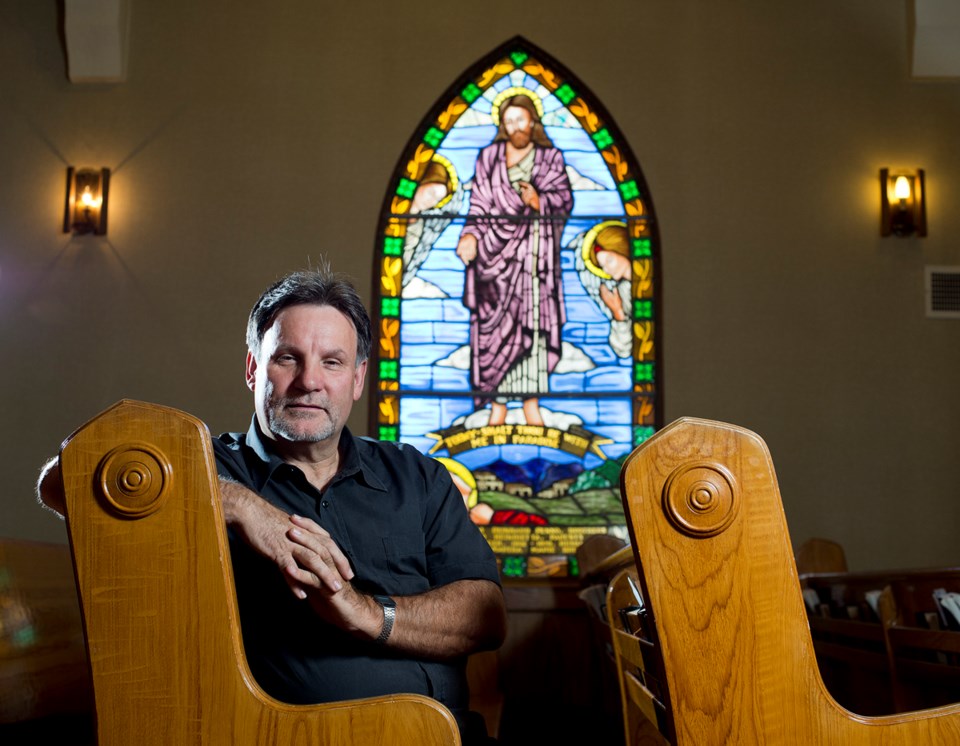In the 1950s and ’60s, there were several churches in Vancouver offering German language services — and the pews were packed. There was a Catholic parish and several Lutheran and Baptist churches where German speakers could worship in their first language. Times have changed and the two churches offering weekly German services in the city are vestiges of a past that seems unlikely for a renaissance.
There were two main spurts of German migration to Vancouver. The Rucksackdeutschen, those who came after the Second World War with little but what they could carry in a backpack, and the “container Germans,” who arrived in the 1970s, their middle-class possessions following them on shipping containers. The first were often not from Germany at all, but were ethnic German residents of Eastern Europe. In many cases, their families had lived peaceably as German-speaking minorities in Ukraine and other places for generations. After the war, though, those Germans were in many instances made unwelcome. The second bump came in the 1970s and included many who feared nuclear war and the possibility that the epicentre of global conflict would be right on the border between East and West Germany.
But German migration has declined to a trickle. The German economy is humming. As we see in the news every day, Germany is a place migrants are moving to, not from. Each year, maybe 400 Germans come to Vancouver, with a few returning to Europe after a year or two, disappointed by housing and living costs and job opportunities.
Even those who stay, says Pastor Manfred Schmidt of Martin Luther Evangelical Lutheran Church, are fluent in English, like so many European young people these days. If they feel a need for a church at all, they don’t need one in German.
Meanwhile, many of the children and grandchildren of earlier immigrants have moved to the suburbs. And the people who are moving into the traditionally German neighbourhood of Sunset are from other parts of the globe.
Schmidt says the average age of his German Sunday service is probably over 70. He also has an English service that draws some from the neighbourhood, including immigrants from Spain and Brazil. There has been a bit of an upswing in recent months, since he began an outreach program when he moved to the congregation from another one in the Fraser Valley a year ago.
“We started with 25, 30 people,” he says. “We are now between 55 and 60 people, all older people.”
But that good news is almost certainly a last gasp.
“It might be — and that is a long term forecast — that one day we have to sell it or give it over to the Chinese Christian community,” says Schmidt. “There are Chinese Lutheran churches in the neighbourhood already and they are growing in leaps and bounds.”
Not far away, Pastor Hardo Ermisch is a few months short of 25 years in the pulpit at St. Mark’s Evangelical Lutheran Church, in Cedar Cottage. His church, too, offers Sunday services in both languages, but he is emphatic that his is a German congregation.
“It is still our niche and our major thing here,” he says. “If we would have no German service, we would have no existence in this city because we are serving not only our members but the wider German community.”
In addition to pastoring at the German-Canadian Care Home, clergy at St. Mark’s are routinely involved in activities going on in the community, whether the German business association, choirs and clubs or events sponsored by the consul general’s office in Vancouver.
St. Mark’s draws congregants from all over the Lower Mainland, says Ermisch, including people from across the economic, educational and theological spectrums. By being inclusive, he has managed to keep St. Mark’s comparatively flourishing despite the multiple challenges.
“I would say on average we have between 80 to 110 people on a Sunday,” he says. The English service only draws a bit more than a dozen, but they maintain it to be inclusive. The small size of the congregation is an advantage and a disadvantage, he says. It’s a tight-knit group and that is probably what also draws the handful of non-German-speakers to the church.
“To be honest, there are much more attractive English-speaking congregations than ours and you have a pastor without any accent,” Ermisch says with a laugh.
So what does the future hold?
“I would say we still have a future,” he says, “but if we have a future for the next 50 years … I doubt it.”
There are German-language Lutheran, Baptist and Mennonite churches in the Fraser Valley, and those are benefitting from the next generation’s inability to buy homes in the city. But without more immigrants, the story of German-language churches in B.C. probably has more of a past than a future.
“The immigration figures we have point clearly in a different direction,” Ermisch says, “not to Northern Europeans.”



